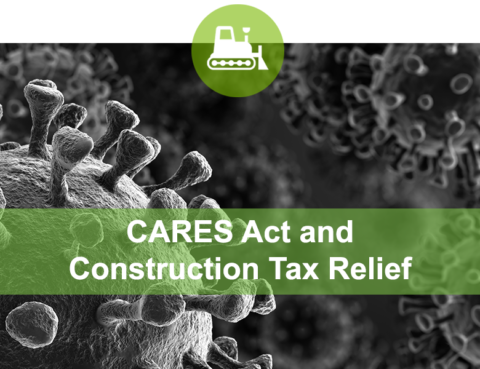
The COVID-19 pandemic is unlike any other crisis we have faced in decades. As contractors continue to work back toward normalcy, it’s critical to learn from recent experience and apply those lessons to preparing for the inevitable disasters and economic downturns of the future. Review Jobs, Backlog and Expenses Take inventory of current jobs and…

Classify Carefully The classification of workers as independent contractors or employees has significant implications — both tax and nontax — for all businesses. But this issue is particularly important for construction companies, given the widespread use of subcontractors in the industry. In recent years, the IRS has been cracking down on employers that misclassify employees…

Construction companies continue to face a serious skilled labor shortage. Although demand for qualified workers has been increasing steadily over the last several years, the impact of the Great Recession continues to limit the supply of candidates to fill those jobs — yes, even all these years later. And the short- and long-term effects of…

Managing construction project scope often looks solid on paper. But put boots and equipment on the ground and suddenly — or, more often, gradually — the job can go soggy as additional, unanticipated work seeps into other tasks. Sometimes you can get paid for this additional work if the owner will sign off on a…

Robotic process automation (RPA) isn’t new, but improvements in the technology and shrinking costs have made it more accessible than ever. By taking over repetitive, mundane, time-consuming tasks, RPA can reduce costs, increase efficiency and productivity, minimize errors, and free up employees to focus on higher value activities. The technology holds promise for construction companies,…

A single construction dispute can turn a profitable job into a loss; multiple ones can put a contractor out of business. Here are seven strategies for avoiding them: 1. Draft contracts carefully. Ambiguous contract language is probably the most common cause of legal wrangles for contractors. Pay close attention to provisions that affect your right…

The federal government’s response to the novel coronavirus (COVID-19) has included many tax law changes. To simplify matters, let’s look at three issues that contractors should keep an eye on in light of the Coronavirus Aid, Relief, and Economic Security Act (CARES Act). Maintaining Payroll As of this writing, some construction work was continuing, but…

Family-owned construction businesses often face distinctive challenges when it comes to succession planning. Emotions can run high, and the business owner’s lifelong working legacy may be at stake. Once you’ve chosen a successor, and put a basic succession plan in place, it’s important to respond quickly if trouble starts brewing. Form your team Succession problems…

Late last year, the Financial Accounting Standards Board granted a one-year reprieve from new lease accounting rules to private companies that comply with Generally Accepted Accounting Principles (GAAP). This means that GAAP-compliant construction businesses with a calendar year end now have until 2021 to implement Accounting Standards Codification (ASC) Topic 842, Leases. (Contractors with a…

Would you recognize an indirect cost if you saw one? Indirect costs can have a substantial impact on a construction company’s financial picture and bottom line. But they’re not always the easiest things to “see.” Let’s zoom in to bring indirect costs better into focus. Viewing the numbers It helps to first define project costs…
